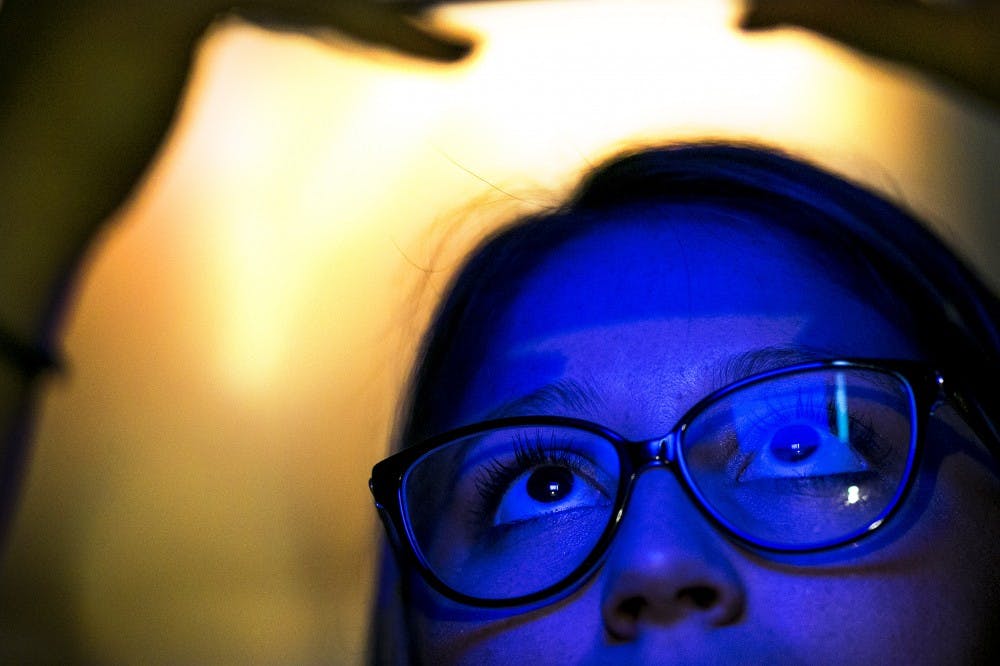Take a look around campus; everyone is on their phones. It is clear we are dependent on them, and others have noticed.
Our parents and others belonging to the older generation all tell us to minimize our usage, complaining that we use up all our data in a week and are being distracted from our studies.
We argue that we do it out of convenience and due to the ever-changing nature of social interaction. However, there is a time and a place for it, and that place is not our beds.
In order to save ourselves from sleep deprivation, we need to put the phones down, most likely sooner than anticipated.
According to a study conducted by the National Sleep Foundation, children need about 9 to 11 hours of sleep a night, while teenagers need about 8 to 10 hours of sleep a night. Although most college students don’t qualify as teenagers anymore, the sleep deprivation experienced by most college students is still not acceptable.
Too little sleep is often associated with health problems including depression and increased anxiety. In the long-term, sleep deprivation could lead to obesity, high blood pressure and an increased risk of diabetes.
Although this lack of sleep could be attributed to the work load of college students as well as common sleeping disorders such as insomnia, there is another factor at play: smartphones and other electronics.
It is all too common that people fall asleep watching Netflix or playing on their phones. Not only does this prevent the right mindset for a restful sleep, but it is also proven that the human body can't chemically prepare for sleep due to the light emitted from these devices.
“Research studies have associated the type of light emitted by computers, iPhones, etc. prevent the production of a hormone that helps bring about sleep at night,” Dr. Carol Baldwin, ASU professor from the College of Nursing and Health Innovation, said. “The light delays the production of melatonin by about two hours, so if an adolescent is using their computer in their bedroom under a blanket so they don't get caught by a parent until, say, midnight, melatonin release is delayed until around 2 a.m.”
According to a study conducted by Harvard Medical School, those who used a paperback book fell asleep 10 minutes sooner than those who read an e-reader, releasing double the melatonin about 90 minutes sooner.
However, sleep deprivation is not always directly linked to the light emitted from smartphones and other devices. Often times, our need stay up to date with social media indirectly causes sleeping problems. For example, in a study conducted by researchers at California State University, individuals continued to have sleep problems, even without access to electronic devices simply due to their dependence on them and anxiety induced by FOMO (fear of missing out).
In order to be healthy human beings, we must embrace the fact we are dependent on electronic devices as forms of social interaction and try to make changes accordingly. Additionally, in the short term, we must put these devices away sooner, to allow our bodies and minds to prepare for sleep.
Unfortunately, many college students aren’t willing to make these sacrifices. Instead, they try to solve the problems using other methods, usually to no avail.
“Missed sleep cannot be made up by naps during the day," Baldwin said. "A nap during the day can result in further sleep problems. Although melatonin supplements are sold over the counter at health food stores, there is not proof or guarantee that the supplement is in any way effective.
"There are other chemicals in the brain that work with melatonin to promote health sleep. Taking a supplement does not take the place of the brain's need for healthy natural sleep."
There are enough obstacles in college without the added pressure of self-induced sleep deprivation, so for now ladies and gents, let’s put the phones away and get some rest.
“All electronic media — computers, e-readers, phones, TV, radio — should be kept out of the bedroom so that the brain equates the bedroom with sleep rather than Skyping, reading and so forth,” Baldwin said.
Reach the columnist at ghirneis@asu.edu or follow @ghirneise2 on Twitter.
Editor’s note: The opinions presented in this column are the author’s and do not imply any endorsement from The State Press or its editors.
Want to join the conversation? Send an email to opiniondesk.statepress@gmail.com. Keep letters under 300 words and be sure to include your university affiliation. Anonymity will not be granted.
Like The State Press on Facebook and follow @statepress on Twitter.




